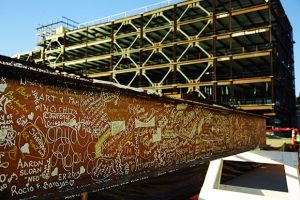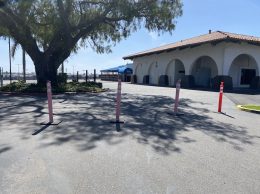Ventura County’s Community Memorial Health System has embarked on an ambitious effort to address a severe shortage of family doctors that is looming nationwide.
About a third of physicians now practicing are age 58 or older, Community Memorial President and CEO Gary Wilde said in answering questions after a State of the Health System address on May 8. A national shortage of 125,000 doctors is predicted by the year 2020, he said in the event at the Museum of Ventura County.
Wilde said Community Memorial Hospital in Ventura launched its own residency program last July that will eventually grow to 60 or 70 residents in training.
He shared the podium with chief medical officer Dr. Stanley Frochtzwajg, who said during his portion of the program that the residency initiative now has 10 physicians, with four in internal medicine, four in family practice and two in orthopedics. Starting in July, it will add three general surgery residents.
Wilde said the hospital has had an ob/gyn residency associated with UCLA for about six years and has had residents from Santa Barbara Cottage Health System in general surgery. Community Memorial plans to double the residents in its own program each year to reach the long-term goal, he said.
Wilde told about 140 people in attendance that the not-for-profit health care system can attract physicians more easily than other locales because of its attractive location, “but we’re going to do this to replenish our medical staff with the best and the brightest.”
The two speakers gave a detailed report on the Community Memorial Health System, which encompasses Community Memorial Hospital in Ventura, Ojai Valley Community Hospital and 11 family-practice health centers in Ventura County.
Frochtzwajg said the system’s switch to electronic health records, launched just over three ago, will soon allow patients to take ownership of their records.
“We’re going to allow patients, over the next year, to get access to increasing information from their chart: access lab results, access imaging results, X rays, CAT scans and even access the progress notes that the doctors write about the patient,” he said.
There has been pushback from some physicians on the progress notes but they are coming around, he said. The federal government is mandating greater access, he noted.
Frochtzwajg cited a number of medical care advances, including a Wound Care Center that uses a high-oxygen environment to treat injuries more effectively, and the RapidArc radiotherapy machine at the Comprehensive Cancer Resource Center, which can deliver radiation to kill tumors deep in tissue without affecting superficial areas.
He said the system’s 128 Low Dose CAT Scanner delivers such precise images that lung tumors are now detected at a curable stage. “This is a remarkable and amazing accomplishment,” he said.
Wilde gave an update on construction in progress on a new Community Memorial Hospital in Ventura that will meet state earthquake standards. All the steel support structure is up, he said, and work is progressing on internal framing. Completion is due in late 2015.
He said the project is going for a gold LEED certification and that it will have 10 new state of the art surgical suites. He said patients will be in all private rooms with wall to wall windows overlooking the islands and mountains. Families will be able to stay overnight comfortably with patients.
He showed a slide with white pipes jutting up where seismic probes have been sunk at various depths. They will have a signal linked directly to Caltech in Pasadena.
“We’ve really thought this through,” he said. “The CMHS hospital we’re building is arguably one of the best designed hospitals in the country.”

Community Memorial Health System is building a new state-of-the-art hospital in midtown Ventura (courtesy photo)
In answering a question from the audience on what will become of the old hospital space, Wilde said one of the new uses being considered is creating an incubator space where a fledgling biotech company could come into a medical environment and put down roots in Ventura. Wilde said about half the space will be used as it is now, including for administrative offices, conference rooms and laundry.
Reporting on the system’s financial health, Wilde said it had a $32 million operating income last year. He said that the nonprofit system, with no large corporate overhead, was able to charge rates among the lowest in the region, according to insurance companies.
He said the Ojai campus lost $1.7 million last year. It has been designated a critical access hospital, which should help turn around the balance sheet this year, he said.






 Print
Print Email
Email

















